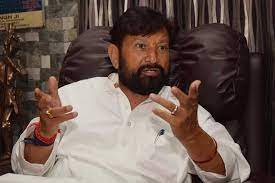The Court overruled its previous decision from 2011, in which it held that mere membership in a prohibited organisation under the Act could not be used as a basis for conviction. The Supreme Court ruled that membership in a Central government-designated illegal association is sufficient to constitute an offence under the Unlawful Activities Prevention Act (UAPA) [Arup Bhuyan v. State of Assam Home Department and anr].
In doing so, the Court’s Bench of Justices MR Shah, CT Ravikumar, and Sanjay Karol upheld the constitutionality of Section 10(a)(i) of the UAPA, which had previously been struck down by a division bench in 2011.
“Aim of UAPA is to prevent certain unlawful activities and prevent the same…at the cost of repetition, UAPA is to punish the person a member of an unlawful organisation in furtherance of the provisions of the UAPA…Thus Section 10(a)(i) is absolutely in consonance with Articles 19(1)(a) and 19(2) of the Constitution and thus in consonance with the objectives of the UAPA,” the Bench observed.
Another issue before the Court was whether provisions of a Central Act could be read down in a case where the Act was not challenged and without the Central Government being heard. The Court ruled in this regard, “Enormous harm would be caused to State if they are not heard…and Centre should have made submissions to justify 10(1)(i) and what were the objects and purposes…in view of the above, Section 10(a)(i) should not have read down by this Court, especially when the constitutional validity of the Section was not in question.”
Justices Markandey Katju and Gyan Sudha Mishra acquitted Arup Bhuyan and Indra Das in 2011 for violations of the Terrorist and Disruptive Activities (Prevention) Act (TADA).
The supreme court ruled that the TADA court had relied on an alleged confession statement, and that membership in a proscribed organisation under the Act could not serve as a basis for conviction on its own. Relevantly, the 2011 Bench, relying on its decision in State of Kerala v. Raneef as well as the American Bill of Rights and a number of US Supreme Court decisions, had stated in the context of the TADA Act that, “In our opinion, Section 3(5) cannot be read literally otherwise it will violate Articles 19 and 21 of the Constitution…Hence, mere membership of a banned organisation will not make a person a criminal unless he resorts to violence or incites people to violence or creates public disorder by violence or incitement to violence.”
In 2014, the Supreme Court determined that a larger bench should hear the larger issues in three cases. This led to the current citation. The Union government and some state governments argued that the aforementioned provision was effectively watered down by invoking the American Bill of Rights, thereby impeding efforts to combat terrorism because UAPA cases were also affected by the interpretation of the highest court.
The Central government argued that the Court could not strike down the provisions of an anti-terror law without hearing its arguments and relying on the potential for law abuse. Tushar Mehta, appearing on behalf of the Central government, argued that it was difficult to prove official membership in banned organisations. He added that the stipulations read were a deterrent and preventative measure.
The Secretary-General emphasised that the current state of affairs could permit terrorist activity if it is not conducted under the banner of banned/terrorist organisations. In matters involving substantive rights such as personal liberty, Senior Counsel Sanjay Parikh, representing an intervenor-NGO, argued that provisos could be read down even if they were not directly challenged.
He argued that civil liberties are a part of both the Indian and American constitutions, and therefore it would be improper to invalidate the challenged orders solely on the basis that they rely on US court decisions.



